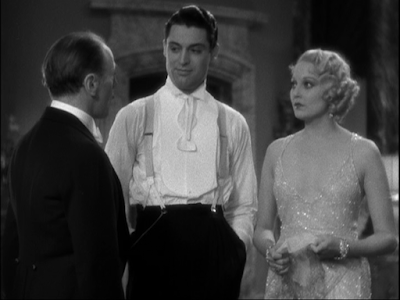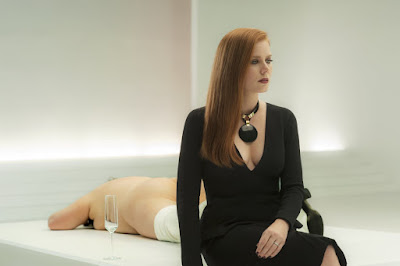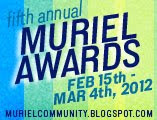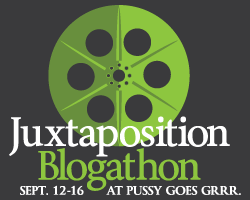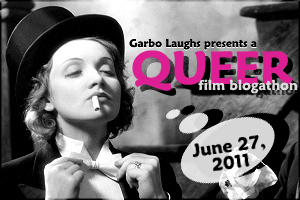There are more films starring Cary Grant in my movie collection than films starring any other actor. No small feat given how many films I have with John Wayne, Humphrey Bogart, and Christopher Lee, respectively. I think John Wayne may have been in the lead until this Christmas, when my main Christmas gift was the Universal Vault Collection of Grant's early films, most of them from the pre-1950 Paramount library that Universal owns. They've been stingy with that library over the years. Many of the films in this set have never seen a commercial release for home video. In any event, this set has eighteen films, all made before 1937, before Grant was "Cary Grant," before he had fully developed the Grant persona (stolen from Leo McCarey on the set of The Awful Truth, if you believe McCarey on the matter). Grant's star became a supernova after 1937, when he began appearing in some of his best-loved films, including Topper and the aforementioned The Awful Truth. The films in The Vault Collection are not so well-known as a rule. Oh, it has the two films Grant made for Mae West, sure, and Blonde Venus with Marlene Dietrich and Joseph Von Sternberg, but those aren't really "Cary Grant" films, even if Mae West recognized a diamond in the rough when she saw one. West had an eye for diamonds.
Monday, January 16, 2017
The Grant Mystique: This is the Night
Posted by
Vulnavia Morbius
at
7:22 AM
0
comments
![]()
Labels: Cary Grant, classic film, comedy, Pre-Code, This is the Night
Saturday, January 14, 2017
Winter 2016: Jazz
On the evidence of Whiplash and La La Land (2016), director Damien Chazelle sure likes jazz. He likes it so much that he wants to save it from its death spiral, single-handedly if necessary. Maybe he'll succeed. I don't know. I wish he'd try harder to save it with actual black people, you know? The people who actually invented jazz? But, like it or not--and this film doesn't--black people have moved on to other forms of expression, leaving jazz to (mostly white) academics and nostalgics. I think Chazelle is an academic, however much he wants to express a visceral passion for jazz in his films. There's a scene in La La Land where he tries to convey what jazz has become versus what he thinks jazz ought to be when he has his hero, Sebastian, a jazz pianist, trying to mansplain why his heroine, Mia, an aspiring actress, should like jazz even after she's said she doesn't like it. This resonated in my head with some recent articles in Seattle's The Stranger about bands one woman pretended to like to impress boys and it dropped me out of the movie for few minutes, a discordance that echoed back later in the film where the filmmakers tip their hats to Vertigo, which similarly follows a man who wants to remake a woman. So, basically, the politics of images in La La Land are somewhat problematic.
Posted by
Vulnavia Morbius
at
4:58 PM
0
comments
![]()
Labels: 2016, La La Land, music
Monday, January 02, 2017
Winter 2016: Nocturnal Ocean Beasts
Here are some comments on some of the films I've been seeing this month. I don't have the heart or fortitude for my usual jeremiads right now, so these are brief.
Posted by
Vulnavia Morbius
at
10:18 AM
3
comments
![]()
Labels: Allied, animation, Fantastic Beasts and Where to Find Them, Fantasy, Moana, Nocturnal Animals
